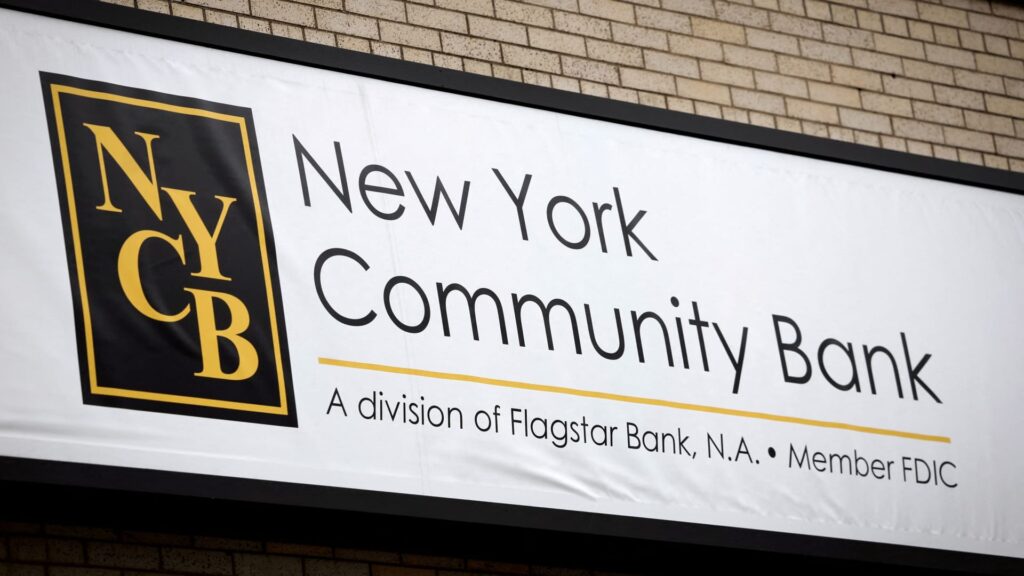A sign above a New York Community Bank branch in Yonkers, New York, on January 31, 2024.
Mike Seegar | Reuters
Regional lender New York Community Bank may have to pay more to maintain deposits after one of the company’s key ratings was downgraded for the second time in a month.
Late Friday, Moody’s Investors Service downgraded the deposit rating of NYCB’s main subsidiary bank by four notches from Baa2 to Ba3, placing it three notches below investment grade. This followed a two-notch downgrade by Moody’s in early February.
Analysts who track the company say the downgrade could create contractual obligations for NYCB’s business clients to maintain investment-grade deposit ratings. Consumer deposits at FDIC-insured banks are covered up to $250,000.
NYCB has been caught in a stock free fall that began a month ago when it reported a surprise fourth-quarter loss and an increase in provisions for loan losses. Concerns intensified last week after the bank’s new management discovered “significant deficiencies” in the way it reviews its commercial loans. The bank’s shares have fallen 73% this year, including 23% on Monday, and now trade at less than $3 a share.
Of key interest to analysts and investors is the state of NYCB’s deposits. The bank said last month that it had $83 billion in deposits as of Feb. 5, and that 72% of them were insured or secured by collateral. But those figures date from the day before Moody’s began cutting the bank’s ratings, sparking speculation about a possible deposit run since then.
The Moody’s downgrade could impact the funds in at least two areas: the Banking-as-a-Service business, with $7.8 billion in deposits according to a May regulatory filing. inningsand a mortgage escrow division with $6 billion to $8 billion in deposits.
“There is a potential risk to deposit servicing in the event of a downgrade,” Citigroup analyst Keith Horowitz said in a Feb. 4 note.
NYCB executives told Horowitz that the deposit rating, which Moody’s pegged at A3 at the time, would need to drop four notches before it was at risk. Since this note was published, it has dropped six notches.
During a conference call on February 7, NYCB CFO John Pinto reiterated that the bank’s mortgage escrow business needs to maintain investment-grade status and said the division’s deposit levels ranged from $6 billion to $8 billion.
“If there’s an agreement with these investors that you have to be investment grade, theoretically that would be a trigger event,” KBW analyst Chris McGratty said of Moody’s downgrade.
NYCB did not immediately respond to CNBC’s calls or email seeking comment.
It could not be determined what the contracts force NYCB to do in the event of a violation of its investment-grade status or whether downgrades from multiple ratings firms would be required to trigger the contract provisions. For example, while Fitch Ratings cut NYCB’s credit ratings to trash Last week, he kept the bank’s long-term uninsured deposits at BBB-, one level above junk.
To replace the deposits, NYCB could raise brokered deposits, issue new debt or borrow funds from the Federal Reserve, but all of that would likely require higher costs, McGratty said.
“They will do everything they can to keep deposits in-house, but as this scenario plays out, financing the balance sheet could become prohibitively expensive,” McGratty said.
Don’t miss these stories from CNBC PRO:


